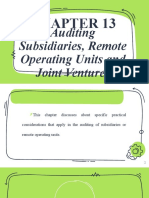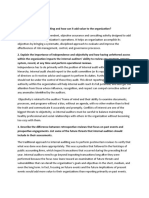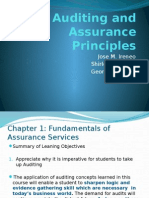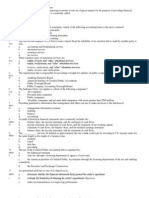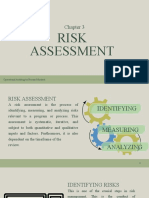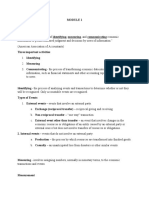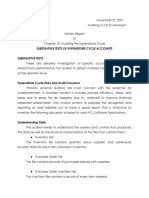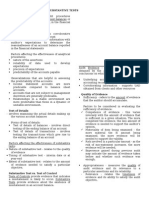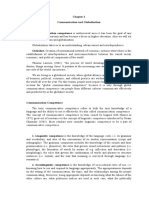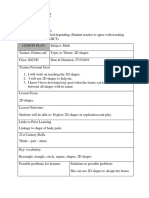100% found this document useful (1 vote)
9K views4 pagesNotes in Operations Auditing
Operational audit assesses conformity to procedures and methodologies. Specialized auditors conduct the audit and submit a report of findings and recommendations to improve implementation and compliance. The goal is to improve efficiency, effectiveness and customer satisfaction.
Internal auditing adds value and improves operations by bringing a systematic approach to evaluate risk management, controls, and governance processes. It helps the organization achieve its objectives through independent and objective assurance and consulting.
Operational auditing and internal controls are related. Operational audits evaluate the efficiency and effectiveness of internal controls and make recommendations to management.
Uploaded by
Jenny KimmeyCopyright
© © All Rights Reserved
We take content rights seriously. If you suspect this is your content, claim it here.
Available Formats
Download as DOCX, PDF, TXT or read online on Scribd
100% found this document useful (1 vote)
9K views4 pagesNotes in Operations Auditing
Operational audit assesses conformity to procedures and methodologies. Specialized auditors conduct the audit and submit a report of findings and recommendations to improve implementation and compliance. The goal is to improve efficiency, effectiveness and customer satisfaction.
Internal auditing adds value and improves operations by bringing a systematic approach to evaluate risk management, controls, and governance processes. It helps the organization achieve its objectives through independent and objective assurance and consulting.
Operational auditing and internal controls are related. Operational audits evaluate the efficiency and effectiveness of internal controls and make recommendations to management.
Uploaded by
Jenny KimmeyCopyright
© © All Rights Reserved
We take content rights seriously. If you suspect this is your content, claim it here.
Available Formats
Download as DOCX, PDF, TXT or read online on Scribd
/ 4
















